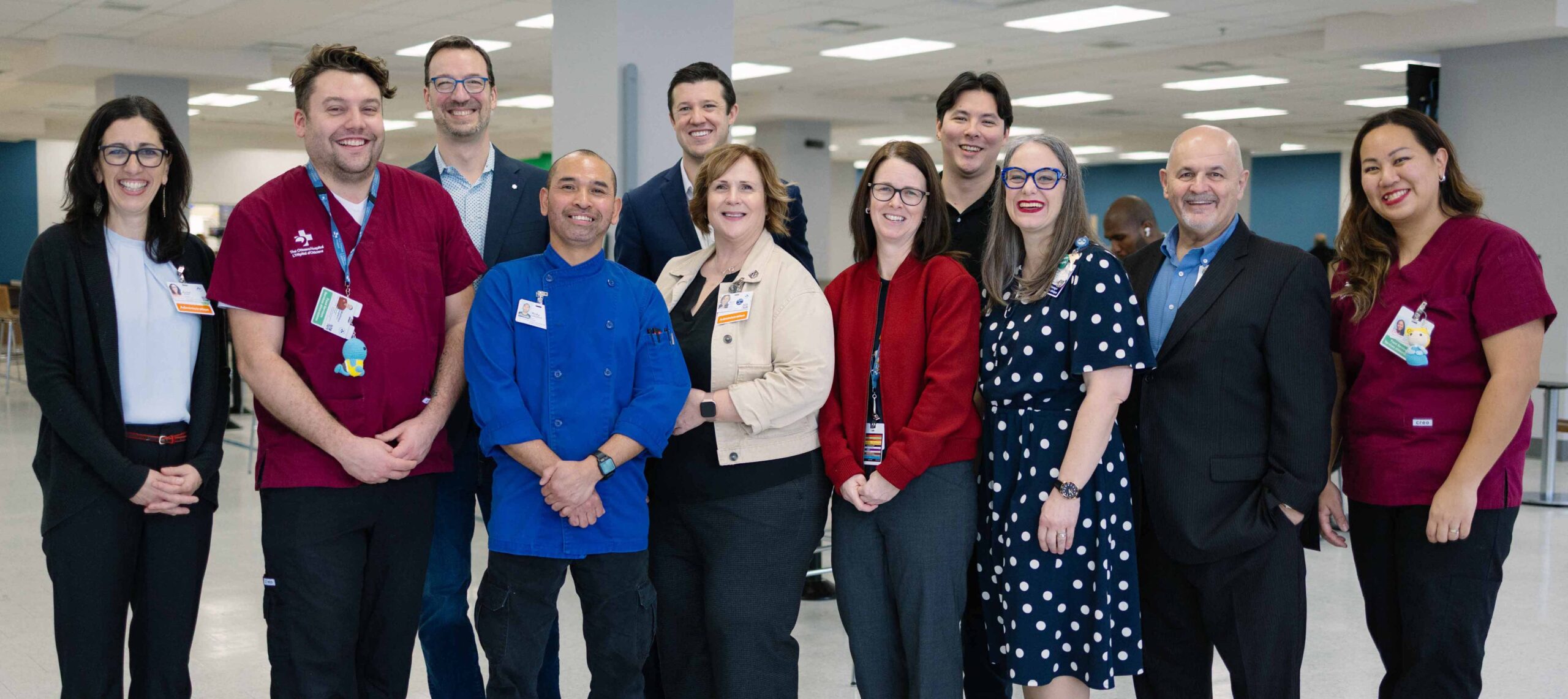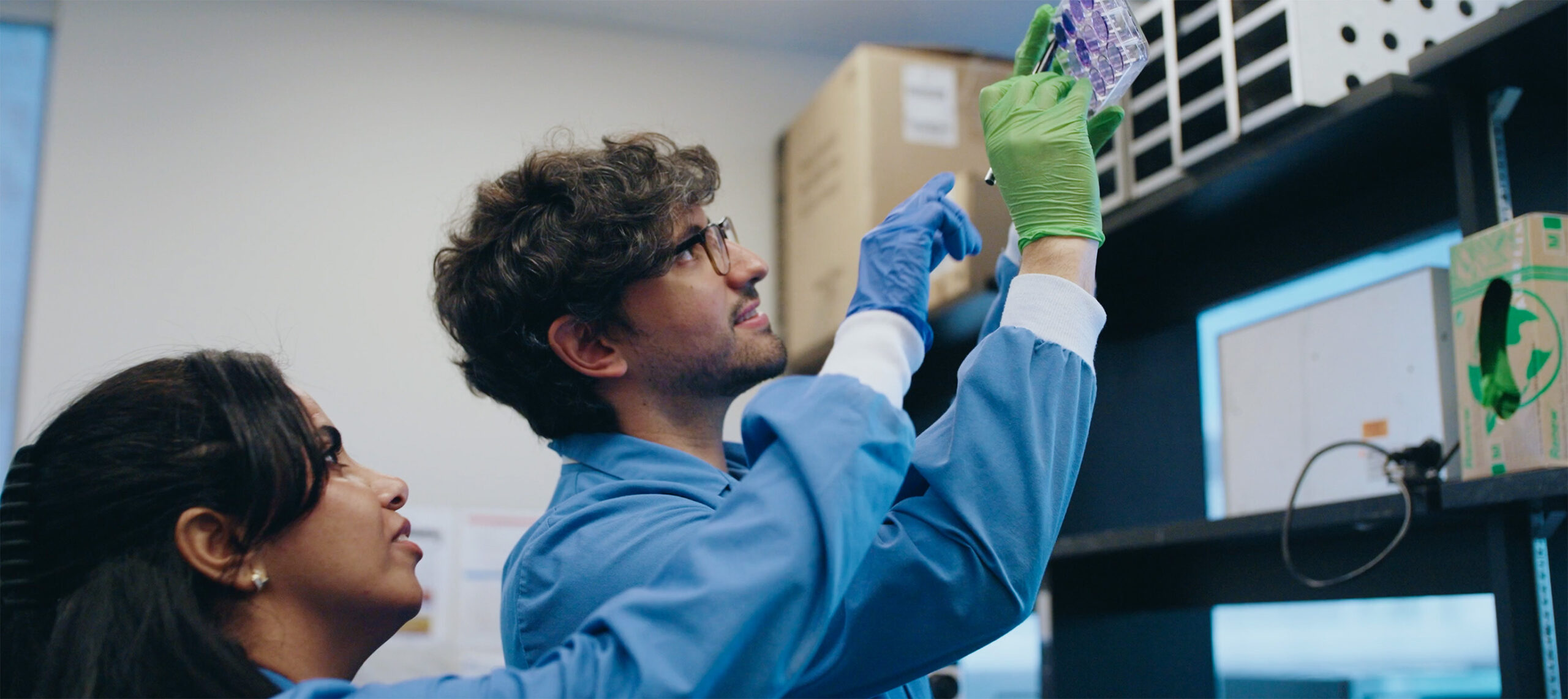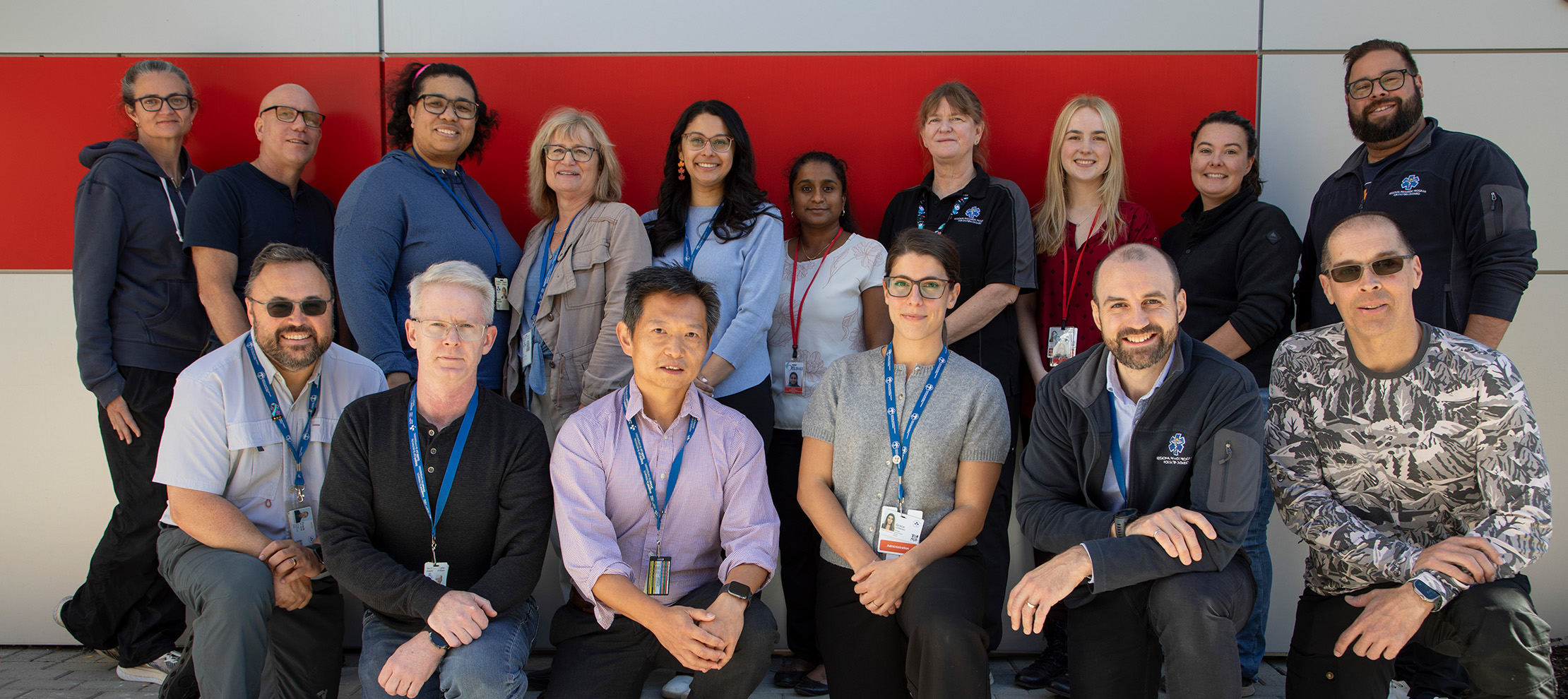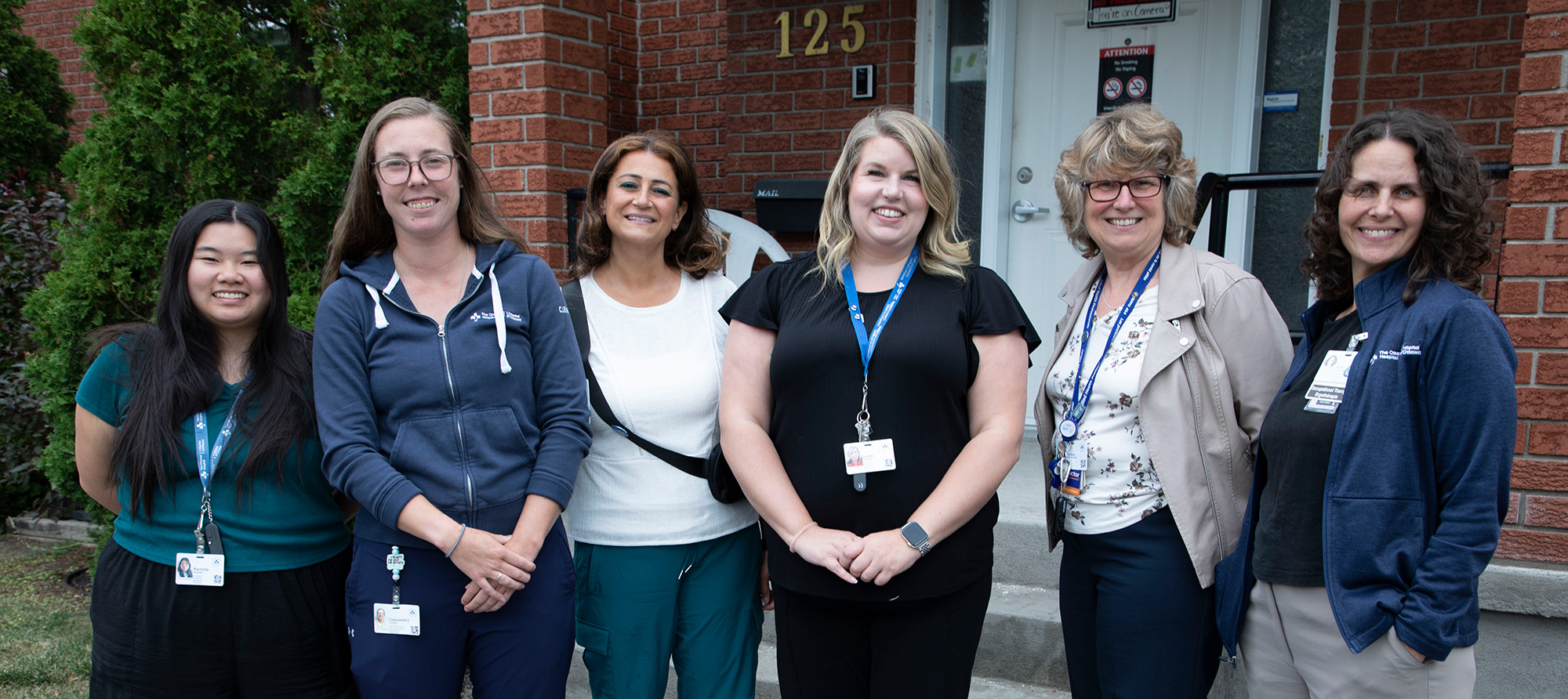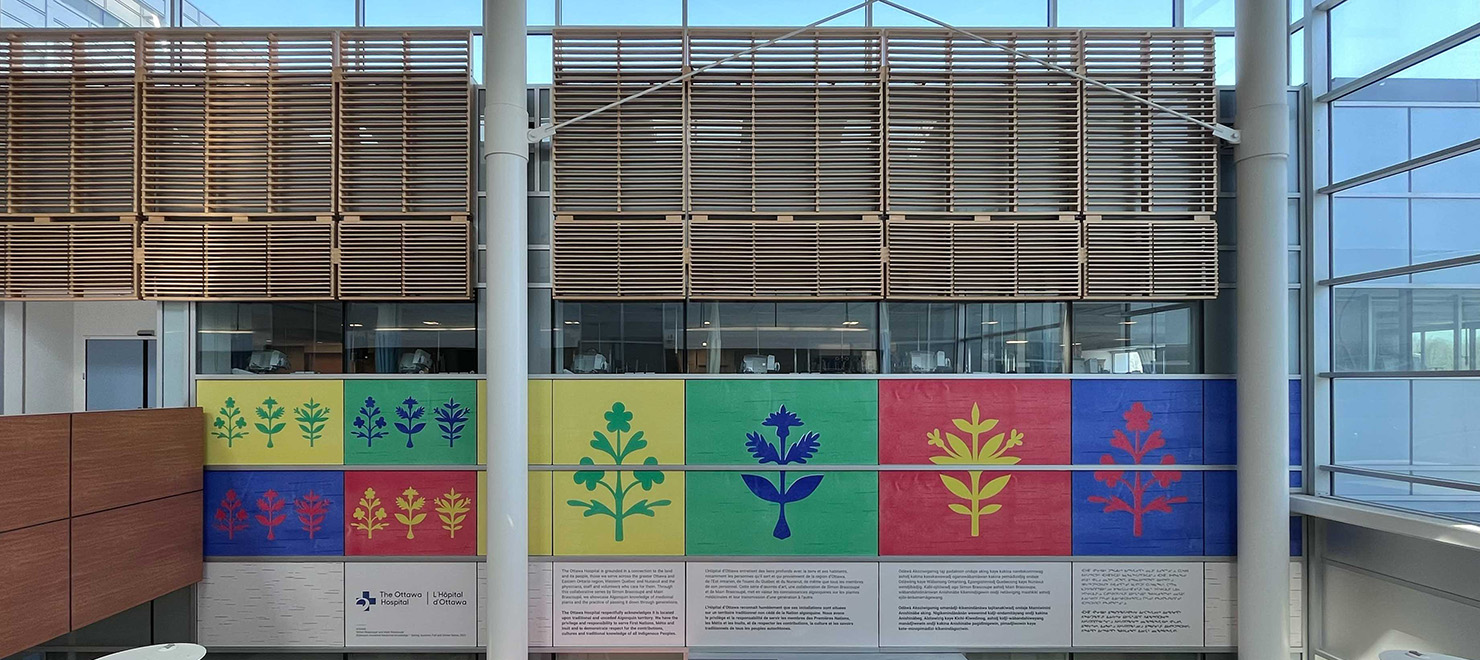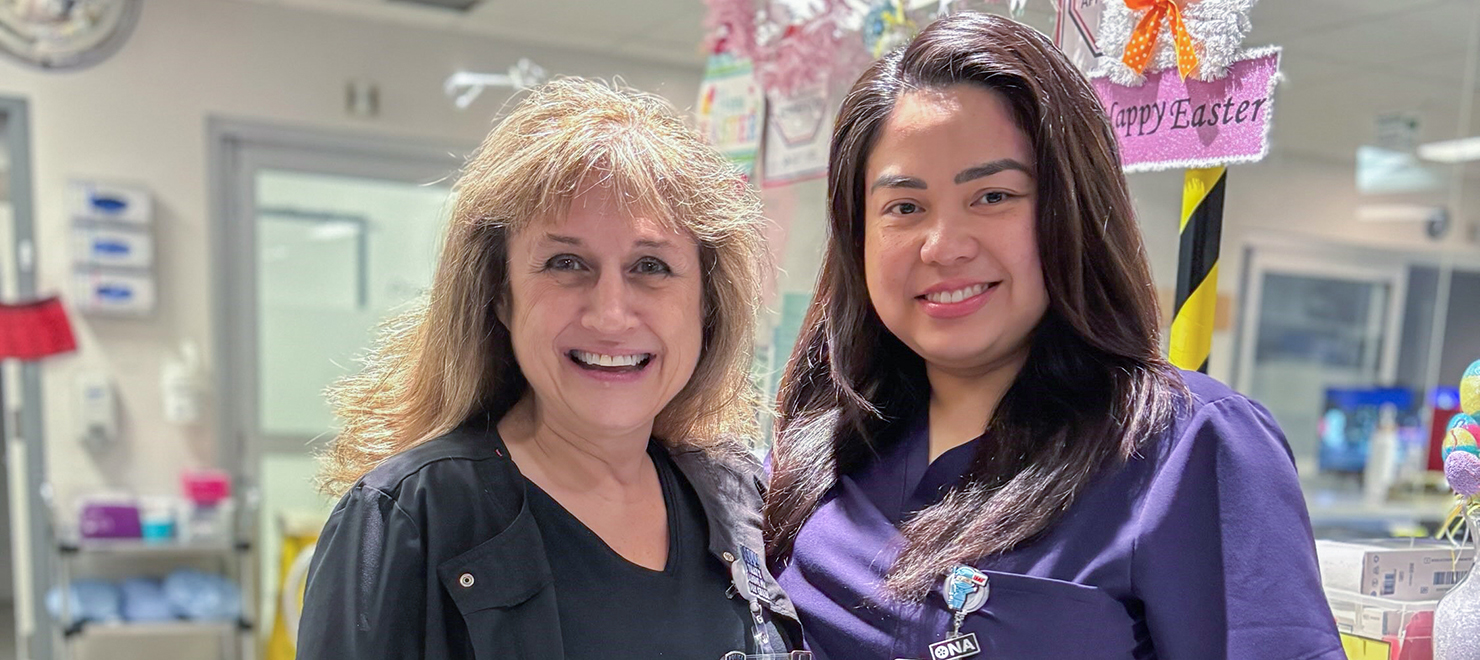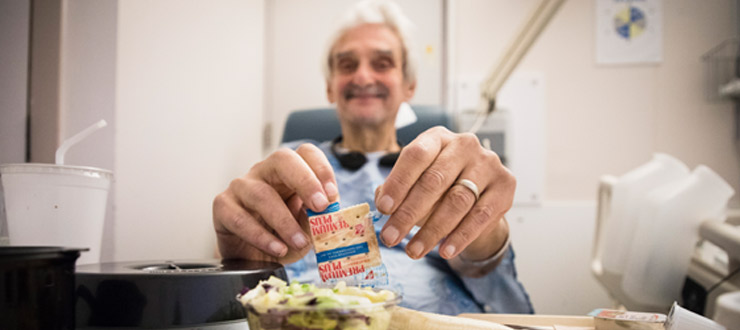
Patients such as Philip Barry Yaverbaum arrive at The Ottawa Hospital with a range of nutritional needs.
It starts with two simple questions when patients are being admitted to 8 West Medicine Unit at The Ottawa Hospital. But Clinical Dietitian Joseph Murphy said the More2Eat project benefits for patients and staff have been huge.
“An unfortunately large number of patients used to become more malnourished while in hospital,” Murphy said. “That could be because they’ve had surgery and can’t eat, for example. By doing this screening up front, and through subsequent improved monitoring, we can prevent that from happening.”
In 2013, the Canadian Malnutrition Task Force revealed that nearly 45 percent of patients admitted to hospital in Canada were malnourished.
The questions – Have you unintentionally lost weight in the last six months? Have you been eating less than usual for the past two weeks? – were the first of four practices put in place during the More2Eat project, aimed at improving patient nutrition in five Canadian hospitals. Patients who answered ‘yes’ to both were at nutrition risk and were referred to a registered dietitian or a diet technician to have their nutrition status assessed.
The project then improved monitoring of how much patients were eating. If it was less than half their meals for up to three days, a dietitian would intervene. Staff were also coached in how to identify and remove barriers to eating, such as positioning trays for easy access; scheduling x-rays or other tests outside meal times; and making sure patients have their dentures in and glasses on.
“These practices are clear, they’re effective and they are easy to implement,” Murphy said. “They also raise awareness about the importance of nutrition, because you cannot heal without proper nutrition.”
Nurses play a critical role in More2Eat. While the study involves some extra work, such as weighing patients and learning to judge percentages of food consumed, Clinical Care Leader Kelly Lafontaine said it fosters greater collaboration among staff.
“It was great to have the support from the dietary staff,” she said. “We also learned about services such as ‘ready trays’ which nurses can order from Food Services for patients who have difficulty opening packages and removing lids. These come up with everything already open and set up.”
Murphy said the study underscores that patient nutrition is everyone’s responsibility.
“Food Services personnel became more engaged, and nurses and physicians are more engaged. There is more collaboration because roles are clearly defined,” he said. “The dietitian is then able to focus on the malnourished patient who needs more interventions, more help and direction.”
The results are still being analyzed, but Murphy hopes More2Eat data will show quicker patient recoveries and lower rates of re-admission. He will present findings during Canadian Malnutrition Week, Sept. 25 to 29.
“It’s hard to lower re-admission rates when someone is already malnourished,” he said. “But if they don’t become more malnourished while they are in hospital, and they get a plan for support when they leave the hospital, I’m hoping that will reduce re-admission rates.”

Support patient care and research at
The Ottawa Hospital
You might also like…
Reimagining hospital food: How The Ottawa Hospital is transforming the patient mealtime experience
In 2024, we launched the trial phase of our Patient Food Transformation Project. The goal was to see if it is possible to improve the overall nutrition and quality of food we serve to our patients, while increasing bedside hospitality, enhancing the overall sustainability of our food services, and not increasing operational costs. Our trial wrapped in 2025 with very promising results.
Everyone at our hospital plays a role in research. Here’s how
It’s Research Week at The Ottawa Hospital. Check out this video to hear from some of the incredible people fuelling our discoveries that are having an impact around the world.
How we’re helping over 1,400 paramedics enhance patient care and safety
The Regional Paramedic Program for Eastern Ontario (RPPEO) is on a mission to enhance what happens after you dial 911. Here are three new ways this team is helping paramedics deliver better, safer care to their patients.
How the Robin Easey Centre supports recovery after a brain injury
“When our clients have a purpose — even something as simple as a meaningful activity — it gives them new hope in life.” In this short Q&A, discover how the team at the Robin Easey Centre helps clients rebuild their daily routines and regain their independence after an acquired brain injury.
A guide to services at The Ottawa Hospital for Indigenous patients and families
At The Ottawa Hospital, we are committed to providing culturally safe care for First Nation, Inuit and Métis patients and families. We are working with Indigenous partners to identify ways we can make your time in hospital more welcoming. Here are some of the ways we’re doing that now.
Novice nurses and their mentors learn and grow together
Discover how mentorships at The Ottawa Hospital facilitate a smoother transition into practice for novice nurses, allow experienced nurses to hone their leadership skills, and play a crucial role in retaining nurses from both generations.


 To reset, hold the Ctrl key, then press 0.
To reset, hold the Ctrl key, then press 0.
